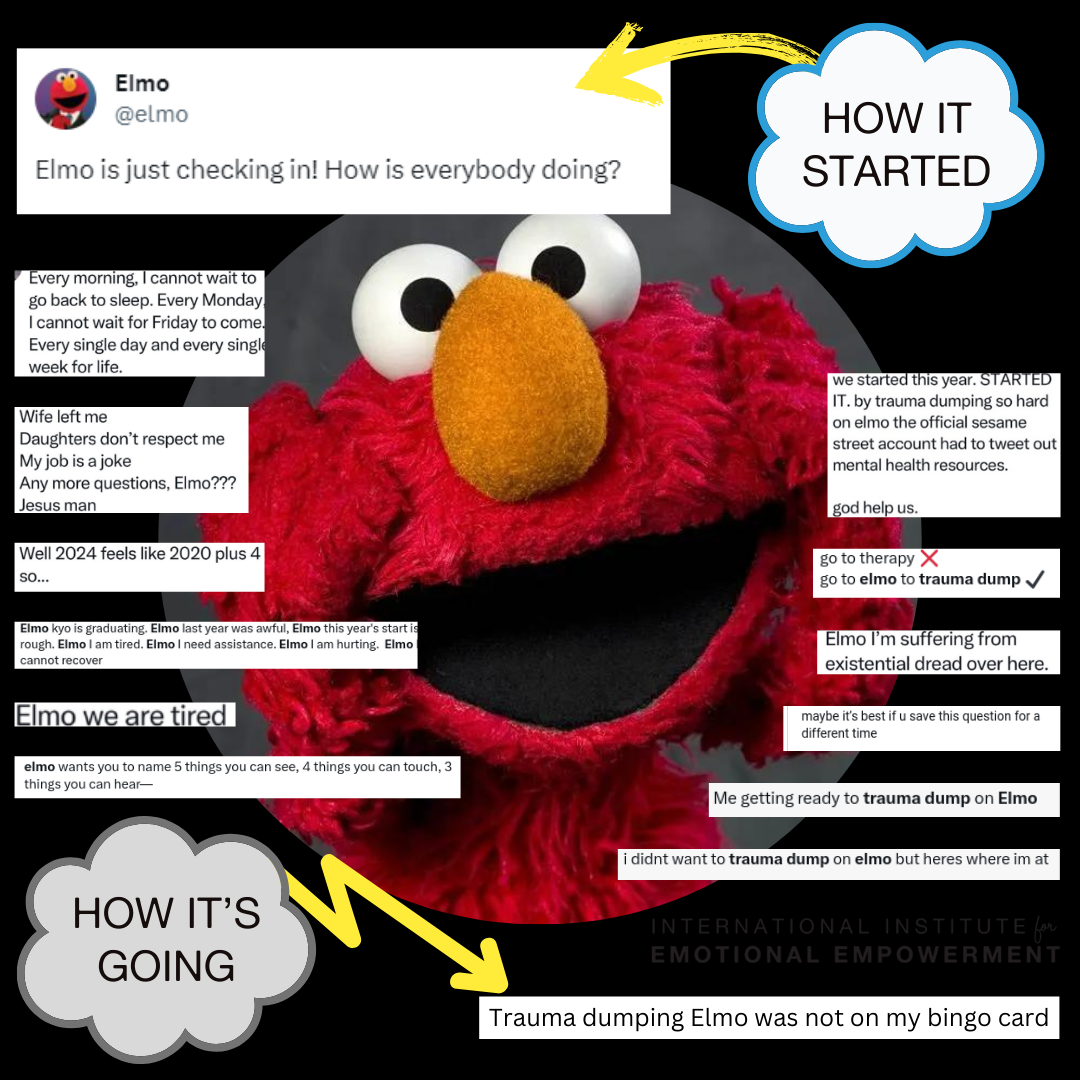Are you confused about trauma? You aren’t alone. The nuances of trauma and its long-term effects are often misunderstood. We don’t have words that distinguish between big, shocking, sudden tragedies and the day-to-day circumstances, even abuses, that shape our self-perception and life choices.There’s the type of impact trauma has in the moment, and then there’s the aftermath of how it reverberates in someone’s life. The key to defining trauma is that it negatively affects your sense of safety. Making trauma tricky to understand is that there are also so many different ways and degrees to the impact trauma has.
Dr. Nadine Harris, author of The Deepest Well, believes the vast majority of us have trauma. The more you identify with groups that have experienced bias, the greater the likelihood that traumatic experiences increase. According to her research, the degree of trauma in a person’s life has negative repercussions on every aspect of our lives. Trauma and toxic stress affect “how we learn, how we parent, how we react at home and at work, and what we create in our communities. It affects our children, our earning potential, and the very ideas we have about what we are capable of.“
From an emotional standpoint, this makes sense when you recognize how unprocessed emotions come out sideways toward one another. When conflict or a continuous challenge occurs, it is often not between people but between another’s trauma, unprocessed emotion, and shame.
While shame is less spoken about, it is often accompanied by trauma. Even though no one ever deserves harm, your ego may place blame, expecting you to control what you cannot; this can evolve into anxiety and other mental health challenges, making the trauma even more difficult to heal.
This is one of the many reasons why trauma can be so confusing. The invisibility of trauma adds to the complexity, even for the person living with trauma. The reason being, is that we are resilient beings who instinctively find ways to work around our pain. Until we no longer can.This coping mechanism fails when faced with challenges at work, relationship issues, or financial difficulties – symptoms of the psychological wounds we carry. In other words, your way to navigate around the trauma worked until it no longer does. Addressing trauma is about fostering internal growth and transforming our coping strategies into tools for healing and empowerment. When negative feelings get louder and louder, it is an indicator you desperately need to address the traumas and shame that is underneath, as the workaround that once allowed you to survive your trauma is now hindering you. We must process and navigate our traumas to integrate them into our lives rather than let them run our lives. But most of us are afraid that if we go toward our traumas, we’ll be swallowed up by our pain.
Learning to work with your emotions from an empowered lens is one of the very best ways I know to help people navigate their trauma. Our emotions are our guides; they help us navigate those internal aspects that are no longer working and provide us with support towards what needs to change inside ourselves so that we can be a positive influence in our lives, and others.
Individually (and collectively), we need to make space for our emotions and their unique intelligence, brushing our feelings aside, coping with, or managing them is no longer enough.
For this reason, we need to go beyond saying our mental health matters; together we need to make room to learn how to address our negative feelings, shame, and trauma.
The fact is we have no idea what has or is currently going on within someone’s life. Being human, we face challenges such as a life-threatening health diagnosis, the loss of a loved one, divorce, bankruptcy, addiction, struggles with mental health, and other violations that make us feel unsafe.
I was incredibly touched by the feedback I received from HR leader Phillip Spearo, whose organization I worked with to recognize the trauma their employees were experiencing:
“We were so lucky to have found Michelle.
I worked with employees who had experienced significant trauma in their lives. Employees were coming to work stressed because of this trauma. The trauma and heightened level of stress led to many difficult interactions in the workplace.
Through Michelle’s guidance, we started unpacking behaviors and emotions. Employees could better identify their emotions and why they were experiencing it. This healing process ultimately led to a better workplace.”
I greatly appreciate leaders who not only recognize when their people are struggling, they reach out to find solutions. I’ve worked with organizations whose people are experiencing a level of trauma due to everything from being bought out and having major shifts in the company, layoffs, as well as witnessing people go off the rails, emotionally.
Whether at home, at work, or in our relationships, we can bring out the best in ourselves and one another when we recognize how our negative feelings are guiding us to heal. This is the path to true psychological safety that must begin within you, then you can be available to support the psychological safety of those around you.
Let’s be real…this is an ongoing process; Correction…it’s a life habit. As mentioned previously, learning the language of your emotions from an empowered lens provides you the tools needed to navigate through negative feelings as they arise, so these feelings stop causing you or others harm and instead, they help. Unfortunately, most people don’t have the correct tools to create psychological safety from within. If you are ready to change that, and your life, check out our course catalogs on Emotional Empowerment Training by clicking here >> https://iiee.training/emotional-empowerment-corporate-course-catalogs/
Strengthening your emotional health isn’t likely going to earn you a public award but it’s so much better. The growth, healing, and peace you will achieve is just about the best feeling in the world; it will be felt all around you… in how you live and experience life to how you make others feel by simply being you!
To your ever-growing, strengthening, and resilient emotional well-being!
-Michelle
The account for “Sesame Street’s” famous red muppet, Elmo, took to social media Monday to ask a seemingly straightforward question: “Elmo is just checking in! How is everybody doing?”
The inquiry on X, formerly known as Twitter, was met with an outpouring of angst and existential dread form thousands of users who told Elmo things aren’t actually going too well for them.


